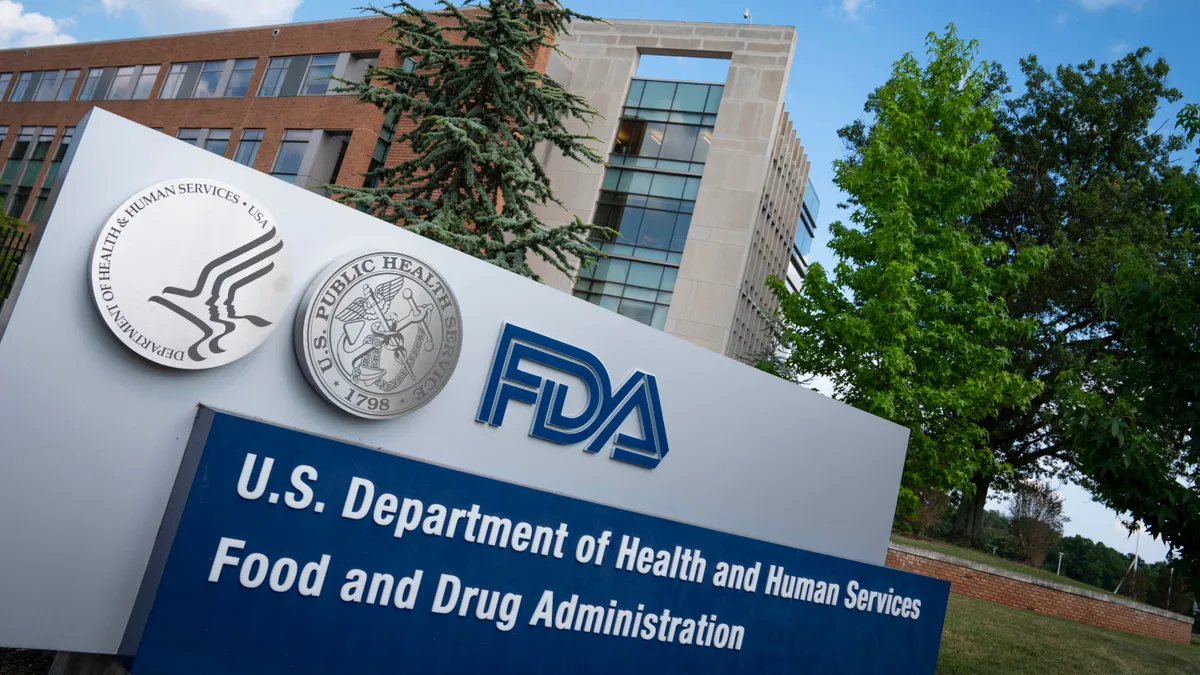Dive Brief:
- The Food and Drug Administration plans to expand its use of remote regulatory assessments. In a Friday guidance, the agency concluded that the assessments should be used for certain scenarios outside the current pandemic and for all types of FDA-regulated products.
- Remote assessments have brought “significant benefits” including helping the FDA reduce delays in approving or authorizing products during the pandemic.
- Some remote assessments will be mandatory, and others will be voluntary. Refusing a voluntary remote assessment could prevent a timely decision on product clearance or authorization, while declining a mandatory assessment could result in the FDA blocking the importation of a product.
Dive Insight:
The FDA clarified in a Q&A when it might conduct a remote assessment in the future, and what companies can expect. For instance, the agency might launch a remote assessment if it can’t conduct an inspection due to a pandemic or natural disaster. It also can use remote assessments to prepare for a planned inspection, follow up on a consumer complaint, or verify that a company has taken corrective actions in response to a previous inspection.
The FDA can also use this information to support market review, such as issuing emergency use authorizations for products, as it has done during the pandemic.
In the last two years, the agency has performed remote assessments for more than 1,470 domestic entities and more than 600 foreign entities.
“As a result of these [remote regulatory assessments], we’ve identified unreported adverse events, gathered information to add products that appear to be violative to import alerts, evaluated the status of companies correcting issues from a previous inspection and helped the agency make regulatory decisions for product premarket submissions,” the agency said in a Friday press release
Generally, companies can expect the FDA to request records, documents, and other information for review. The agency can also request virtual meetings, including a live-streamed or recorded video to examine a company’s facilities or operations.
The remote assessments can be voluntary or mandatory. There are no enforcement consequences for turning down a voluntary assessment, the FDA said, but as a result the agency might not be able to provide a device company with a timely decision on product clearance or authorization, for instance.
There are consequences for declining a mandatory assessment. For example, imported drugs from a company could be subject to refusal, the agency said.











